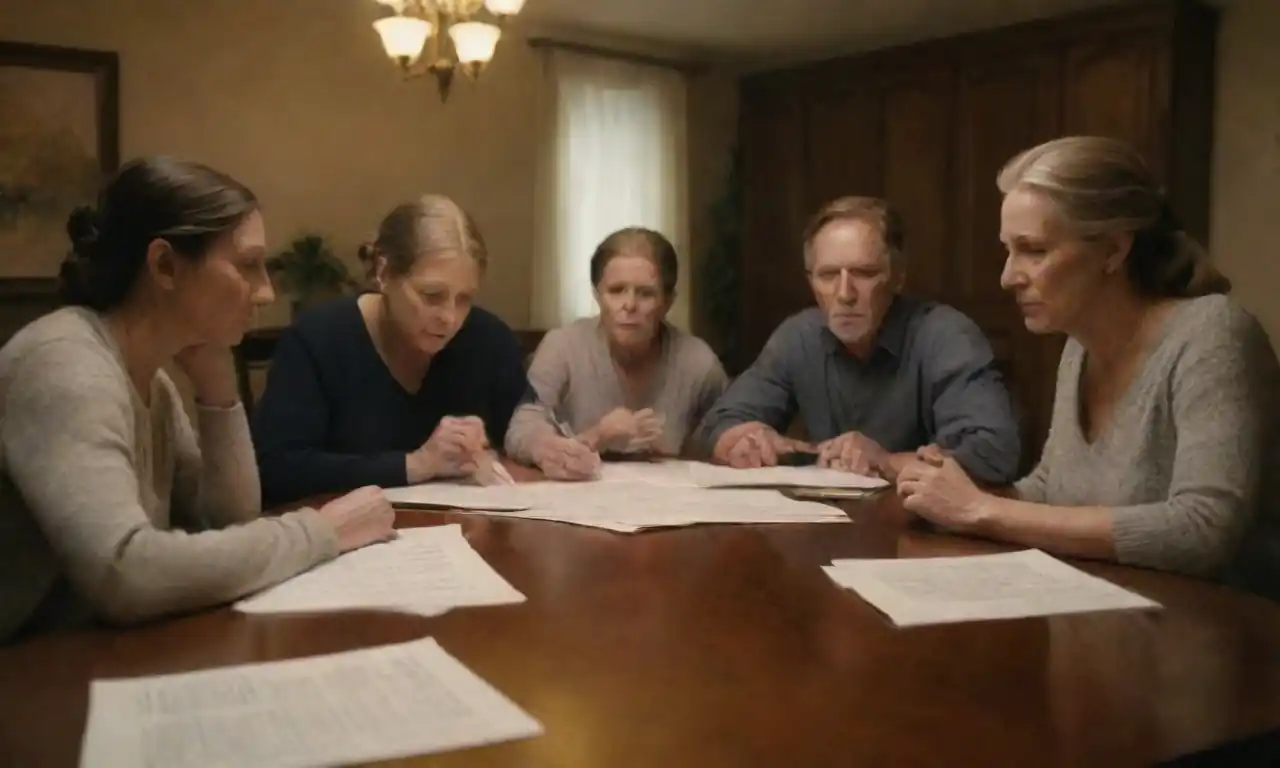Impact of Probate on Friends and Relatives Explained

The death of a loved one often brings a whirlwind of emotions, but it can also usher in a complex and often daunting legal process known as probate. This situation can significantly affect friends and relatives, entangling them in a realm of legalities and financial implications that can be both overwhelming and confusing. Understanding how probate functions, who it affects, and what steps can be taken to navigate this complex landscape is crucial for anyone preparing for or dealing with the aftermath of a loss. Knowledge is power, especially in times of uncertainty, and addressing the intricacies of probate can provide clarity during a challenging period.
This article delves into the impact of probate on friends and relatives, elucidating the probate process, its aims, potential complications, and the emotional ramifications that can surface. We will discuss how the absence of a will complicates matters, the importance of understanding the responsibilities bestowed upon executors, and how conflicts may arise among heirs. By the end, you will have gained valuable insights into the intricacies of probate and its wide-reaching influence on loved ones left behind.
Understanding Probate and Its Purpose
At its core, probate refers to the legal process by which a deceased person's will is validated, and their assets are distributed according to that will or, in the absence of a will, according to state laws. The overarching aim of probate is to ensure a fair and legal transfer of property and assets, and it also serves to settle the deceased's debts. This process often begins when an appointed executor, a person designated in the will to manage the estate, files the will with the probate court. The court then determines the validity of the will, identifies the deceased's assets, pays outstanding debts and taxes, and finally distributes the remaining assets to the rightful heirs.
The probate process can be long and cumbersome, taking anywhere from several months to even years, depending on the estate's complexity and whether disputes arise among claimants. During this time, friends and relatives may find themselves in a state of uncertainty as they await resolution. Often, a lack of understanding about the probate process can lead to frustration, confusion, and even conflict among family members. For many, this process is filled with various hurdles—legal, emotional, and logistical—that can strain relationships among those left behind.
The Emotional Impact of Probate on Loved Ones

Dealing with the death of a loved one is challenging enough, but the accompanying probate process can intensify emotions and lead to friction. Grieving individuals may experience heightened stress and anxiety as they navigate unfamiliar legal waters while making sense of their loss. A significant source of tension arises from the way probate can expose underlying familial dynamics. Past grievances can surface during these emotionally charged times, as contested wills or perceived unfair distributions of assets may spark discord between family members or friends who feel entitled to a share of the estate.
The role of an executor can also add another layer of complexity. Executors are generally tasked with making difficult decisions that might inadvertently favor one heir over another. Friends and relatives may interpret these decisions through their emotional lens, further complicating relationships. Feelings of jealousy, resentment, or favoritism may emerge, making the probate process not merely a legal issue but one infused with deep emotional currents.
Challenges Arising from the Absence of a Will
One of the most significant factors complicating the probate process—and one that can adversely affect friends and relatives—occurs when a deceased individual passes away without leaving a will. In such cases, intestate succession laws apply, which dictate how assets are distributed according to state law. This distribution may not reflect the deceased's true wishes, leaving certain relatives or friends feeling alienated or unjustly treated.
The lack of a will can lead to extended legal battles and confusion, as various family members may make claims to the estate based on their relationships with the deceased. This uncertainty can lead to heightened tensions among family members and friends as they grapple with feelings of mistrust or inequality during an emotionally vulnerable time. An absence of clear directives often leads to erroneous assumptions about rightful heirs and can place undue stress on relationships that may already be fragile.
The Role of Executors and Their Responsibilities
As previously noted, the executor plays a crucial role in the probate process. This individual is responsible for carrying out the decedent's final wishes as expressed in the will and must also adhere to legal requirements mandated by the court. This role can be a double-edged sword; while the executor acts on behalf of the deceased, they also bear the weight of the expectations of the surviving friends and relatives. Therefore, it’s essential for potential executors to approach the responsibility with empathy and transparency, as their decisions and actions may significantly impact family dynamics.
Executors must manage everything from gathering and valuing the estate's assets to paying off debts and taxes before distributing the remaining assets. They may also face scrutiny from beneficiaries, which can create additional pressure and emotional strain. Any perceived mismanagement or favoritism, whether real or imagined, can lead to disputes among heirs, which can spiral into drawn-out legal battles over the estate.
Conflict Resolution Strategies Among Heirs
Disputes among friends and relatives regarding the probate process can often be mitigated through clear communication and transparency. Encouraging open discussions about the decedent’s wishes, creating an atmosphere of understanding, and fostering a collaborative environment can ease tensions significantly. Family mediation is another viable strategy, where a neutral party helps facilitate discussions among disputing heirs. Mediation can be particularly beneficial in emotionally charged situations, allowing parties to explore the issues at hand and develop solutions that may otherwise seem unattainable.
Additionally, documenting decisions made during the probate process can help establish a rational basis for those decisions, reducing misunderstandings and conflicts. Regular updates and responsiveness to inquiries from fellow heirs can foster goodwill and dispel notions of favoritism. Ultimately, a proactive approach to conflict resolution can transform the probate experience from a source of division into an opportunity for unity and healing.
Final Reflection on the Impact of Probate
In conclusion, the impact of probate on friends and relatives is multifaceted, encompassing legal, emotional, and relational aspects that can deeply influence the dynamics of loved ones left behind. Understanding the complexities of the probate process is essential for mitigating potential conflicts and navigating the challenging journey that often accompanies the death of a loved one. Empathy, clear communication, and a commitment to collaborative problem-solving are paramount for preserving relationships during this vulnerable time. By recognizing the profound emotional weight of the probate process and the potential for conflict, families and friends can work toward healing and ensuring that the memories of their loved ones are honored and remembered positively.

Leave a Reply